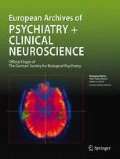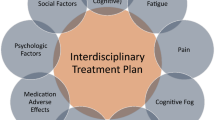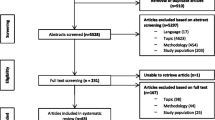Abstract
Schizophrenia is a common mental disorder characterized by deficits in multiple domains of functioning. This study is arguably the first of its kind in Taiwan to examine, in a multifaceted and objective manner, the disability of patients with schizophrenia and the factors affecting it. A cross-sectional design was adopted to gather data from 24,299 patients with schizophrenia who were listed in the Taiwan Databank of Persons with Disabilities. The level of disability in these patients was measured using the World Health Organization Disability Assessment Schedule 2.0. Statistical analyses were conducted through the χ 2 statistic and Poisson regression. The highest level of disability was in participation and the lowest was in self-care. An analysis of disability in all six domains of functioning on the basis of sex, age, type of residence, and socioeconomic status (SES) showed significant differences (P < 0.05). Significant factors (P < 0.05) affecting disability in these domains were female gender, age, educational attainment, SES, type of residence, and employment status. The overall degree of disability in schizophrenia patients was moderate. Six domains were measured in this study. The degrees of disability in mobility and self-care were mild while cognition, getting along, life activities, and participation were moderate. Moreover, female gender, an age of 45 or older, low educational attainment, middle to low SES, staying at healthcare institutions, and unemployment were crucial factors affecting disability of the participants. Preventive and rehabilitation programs should be developed to delay disability and functional degeneration in schizophrenic patients with these characteristics.
Similar content being viewed by others
References
Mollon J, David AS, Morgan C, Frissa S, Glahn D, Pilecka I, Hatch SL, Hotopf M, Reichenberg A (2016) Psychotic experiences and neuropsychological functioning in a population-based sample. JAMA Psychiatry 73(2):129–138
World Health Organization (2016) Schizophrenia. http://www.who.int/mediacentre/factsheets/fs397/en/. Accessed 6 March 2017
Świtaj P, Anczewska M, Chrostek A, Sabariego C, Cieza A, Bickenbach J, Chatterji S (2012) Disability and schizophrenia: a systematic review of experienced psychosocial difficulties. BMC Psychiatry 12(1):1–12. doi:10.1186/1471-244x-12-193
Johnson S, Sathyaseelan M, Charles H, Jacob KS (2014) Predictors of disability: a 5-year cohort study of first-episode schizophrenia. Asian J Psychiatr 9:45–50. doi:10.1016/j.ajp.2014.01.003
Akinsulore A, Mapayi BM, Aloba OO, Oloniniyi I, Fatoye FO, Makanjuola ROA (2015) Disability assessment as an outcome measure: a comparative study of Nigerian outpatients with schizophrenia and healthy control. Ann Gen Psychiatry 14:40. doi:10.1186/s12991-015-0079-6
Hofer A, Rettenbacher MA, Widschwendter CG, Kemmler G, Hummer M, Fleischhacker WW (2006) Correlates of subjective and functional outcomes in outpatient clinic attendees with schizophrenia and schizoaffective disorder. Eur Arch Psychiatry Clin Neurosci 256(4):246–255
McCabe R, Saidi M, Priebe S (2007) Patient-reported outcomes in schizophrenia. Br J Psychiatry. doi:10.1192/bjp.191.50.s21
Üstün TB, Kostanjsek N, Chatterji S, Rehm J (2010) Measuring health and disability: manual for WHO Disability Assessment Schedule (WHODAS 2.0). World Health Organization, Geneva
Garin O, Ayuso-Mateos JL, Almansa J, Nieto M, Chatterji S, Vilagut G, Alonso J, Cieza A, Svetskova O, Burger H (2010) Validation of the “World Health Organization Disability Assessment Schedule, WHODAS-2” in patients with chronic diseases. Health Qual Life Outcomes 8(1):1
Noonan VK, Kopec JA, Noreau L, Singer J, Chan A, Mâsse LC, Dvorak MF (2009) Comparing the content of participation instruments using the International Classification of Functioning, Disability and Health. Health Qual Life Outcomes 7(1):1
Gold LH (2014) DSM-5 and the assessment of functioning: the World Health Organization Disability Assessment Schedule 2.0 (WHODAS 2.0). J Am Acad Psychiatry Law 42(2):173–181
Chiu WT, Yen CF, Teng SW, Liao HF, Chang KH, Chi WC, Wang YH, Liou TH (2013) Implementing disability evaluation and welfare services based on the framework of the International Classification of Functioning, Disability and Health: experiences in Taiwan. BMC Health Serv Res 13:416. doi:10.1186/1472-6963-13-416
Ustun TB, Chatterji S, Kostanjsek N, Rehm J, Kennedy C, Epping-Jordan J, Saxena S, von Korff M, Pull C (2010) Developing the World Health Organization Disability Assessment Schedule 2.0. Bull World Health Org 88(11):815–823. doi:10.2471/blt.09.067231
Üstün TB, Chatterji S, Kostanjsek N, Rehm J, Kennedy C, Epping-Jordan J, Saxena S, Korff MV, Pull C (2010) Developing the World Health Organization Disability Assessment Schedule 2.0. Bull World Health Org 88(11):815–823
Chiu TY, Yen CF, Chou CH, Lin JD, Hwang AW, Liao HF, Chi WC (2014) Development of traditional Chinese version of World Health Organization Disability Assessment Schedule 2.0 36–item (WHODAS 2.0) in Taiwan: validity and reliability analyses. Res Dev Disabil 35(11):2812–2820. doi:10.1016/j.ridd.2014.07.009
Yen CF, Hwang AW, Liou TH, Chiu TY, Hsu HY, Chi WC, Wu TF, Chang BS, Lu SJ, Liao HF, Teng SW, Chiu WT (2014) Validity and reliability of the functioning disability evaluation scale-adult version based on the WHODAS 2.0–36 items. J Formos Med Assoc Taiwan yi zhi 113(11):839–849. doi:10.1016/j.jfma.2014.08.008
Lee RSC, Hermens DF, Naismith SL, Lagopoulos J, Jones A, Scott J, Chitty KM, White D, Robillard R, Scott EM, Hickie IB (2015) Neuropsychological and functional outcomes in recent-onset major depression, bipolar disorder and schizophrenia-spectrum disorders: a longitudinal cohort study. Transl Psychiatry 5(4):e555. doi:10.1038/tp.2015.50
Guilera G, Gomez-Benito J, Pino O, Rojo JE, Cuesta MJ, Martinez-Aran A, Safont G, Tabares-Seisdedos R, Vieta E, Bernardo M, Crespo-Facorro B, Franco M, Rejas J (2012) Utility of the World Health Organization Disability Assessment Schedule II in schizophrenia. Schizophr Res 138(2–3):240–247. doi:10.1016/j.schres.2012.03.031
Krishnan V, Sood M, Chadda RK (2013) Caregiver burden and disability in somatization disorder. J Psychosom Res 75(4):376–380
Adegbaju DA, Olagunju AT, Uwakwe R (2013) A comparative analysis of disability in individuals with bipolar affective disorder and schizophrenia in a sub-Saharan African mental health hospital: towards evidence-guided rehabilitation intervention. Soc Psychiatry Psychiatr Epidemiol 48(9):1405–1415
Liu T, Song X, Chen G, Paradis AD, Zheng X (2014) Prevalence of schizophrenia disability and associated mortality among Chinese men and women. Psychiatry Res 220(1–2):181–187. doi:10.1016/j.psychres.2014.04.042
Abel KM, Drake R, Goldstein JM (2010) Sex differences in schizophrenia. Int Rev Psychiatry 22(5):417–428
McGrath J, Saha S, Welham J, El Saadi O, MacCauley C, Chant D (2004) A systematic review of the incidence of schizophrenia: the distribution of rates and the influence of sex, urbanicity, migrant status and methodology. BMC Med 2(1):1
Liu T, Zhang L, Pang L, Li N, Chen G, Zheng X (2015) Schizophrenia-related disability in China: prevalence, gender, and geographic location. Psychiatr Serv 66(3):249–257
Andersen M, Permin H, Albrecht F (2004) Illness and disability in Danish chronic fatigue syndrome patients at diagnosis and 5-year follow-up. J Psychosom Res 56(2):217–229
Rodrigues CGSS, Jardim V, Kantorski LP, Coimbra VCC, Treichel C, Francchini B, Bretanha AF, Neutzling A (2016) Independent Life Skills among psychosocial care network users of Rio Grande do Sul, Brazil. Ciência & Saúde Coletiva 21(8):2565–2570
Kelly BD, O’Callaghan E, Waddington JL, Feeney L, Browne S, Scully PJ, Clarke M, Quinn JF, McTigue O, Morgan MG (2010) Schizophrenia and the city: a review of literature and prospective study of psychosis and urbanicity in Ireland. Schizophr Res 116(1):75–89
Werner S, Malaspina D, Rabinowitz J (2007) Socioeconomic status at birth is associated with risk of schizophrenia: population-based multilevel study. Schizophr Bull 33(6):1373–1378
Corcoran C, Perrin M, Harlap S, Deutsch L, Fennig S, Manor O, Nahon D, Kimhy D, Malaspina D, Susser E (2009) Effect of socioeconomic status and parents’ education at birth on risk of schizophrenia in offspring. Soc Psychiatry Psychiatr Epidemiol 44(4):265–271
Goldberg S, Fruchter E, Davidson M, Reichenberg A, Yoffe R, Weiser M (2011) The relationship between risk of hospitalization for schizophrenia, SES, and cognitive functioning. Schizophr Bull 37(4):664–670
Agerbo E, Sullivan PF, Vilhjálmsson BJ, Pedersen CB, Mors O, Børglum AD, Hougaard DM, Hollegaard MV, Meier S, Mattheisen M (2015) Polygenic risk score, parental socioeconomic status, family history of psychiatric disorders, and the risk for schizophrenia: a Danish population-based study and meta-analysis. JAMA Psychiatry 72(7):635–641
Bozikas VP, Andreou C (2011) Longitudinal studies of cognition in first episode psychosis: a systematic review of the literature. Aust N Z J Psychiatry 45(2):93–108
Cervellione KL, Burdick KE, Cottone JG, Rhinewine JP, Kumra S (2007) Neurocognitive deficits in adolescents with schizophrenia: longitudinal stability and predictive utility for short-term functional outcome. J Am Acad Child Adolesc Psychiatry 46(7):867–878
Rajji TK, Miranda D, Mulsant BH (2014) Cognition, function, and disability in patients with schizophrenia: a review of longitudinal studies. Can J Psychiatry 59(1):13–17
Rajji TK, Voineskos AN, Butters MA, Miranda D, Arenovich T, Menon M, Ismail Z, Kern RS, Mulsant BH (2013) Cognitive performance of individuals with schizophrenia across seven decades: a study using the MATRICS consensus cognitive battery. Am J Geriatr Psychiatry 21(2):108–118
Nakanishi M, Setoya Y, Kodaka M, Makino H, Nishimura A, Yamauchi K, Mimura M, Sato H, Arata H, Yukumi H (2007) Symptom dimensions and needs of care among patients with schizophrenia in hospital and the community. Psychiatry Clin Neurosci 61(5):495–501
Mausbach BT, Depp CA, Cardenas V, Jeste DV, Patterson TL (2008) Relationship between functional capacity and community responsibility in patients with schizophrenia: differences between independent and assisted living settings. Community Ment Health J 44(5):385–391
Mizuno E, Iwasaki M, Sakai I, Kamizawa N (2015) Experiences of community-dwelling persons recovering from severe mental illness. Arch Psychiatr Nurs 29(2):127–131
Shioda A, Tadaka E, Okochi A (2016) Loneliness and related factors among people with schizophrenia in Japan: a cross-sectional study. J Psychiatr Ment Health Nurs 23(6–7):399–408
Seeman MV (2009) Employment discrimination against schizophrenia. Psychiatr Q 80(1):9–16
Acknowledgements
We thank Kai-Hsiang Chuang for contributing to this study.
Author information
Authors and Affiliations
Corresponding author
Ethics declarations
Conflict of interest
The authors declare that they have no competing interests.
Funding
This study was supported by the Ministry of Health and Welfare, Taiwan (Grant Nos. 98M8178, 99M4080, 99M4073, 100M4145, 101M4100, 102M4018, and 103M03F4037).
Ethical approval
Joint Institutional Review Board of Taipei Medical University (Approval Nos. 201004001 and 201205042).
Rights and permissions
About this article
Cite this article
Chen, R., Liou, TH., Chang, KH. et al. Assessment of functioning and disability in patients with schizophrenia using the WHO Disability Assessment Schedule 2.0 in a large-scale database. Eur Arch Psychiatry Clin Neurosci 268, 65–75 (2018). https://doi.org/10.1007/s00406-017-0834-6
Received:
Accepted:
Published:
Issue Date:
DOI: https://doi.org/10.1007/s00406-017-0834-6




